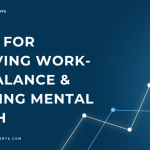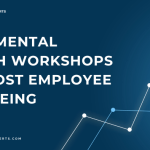Table of Contents
- Introduction
- Case Study 1: Google’s Employee Mental Health Initiatives
- Case Study 2: Johnson & Johnson’s Holistic Health Approach
- Case Study 3: Unilever’s Mental Health Champions
- Case Study 4: Starbucks’ Mental Health Benefits
- Case Study 5: Microsoft’s Emphasis on Work-Life Balance
- Conclusion
- FAQs
Introduction
Mental health in the workplace is more critical than ever, with rising awareness of its importance for employee well-being and organizational success. Companies around the world are taking innovative steps to create healthier work environments. In this blog post, we will explore five inspiring case studies of organizations that have made significant strides in improving workplace mental health. By examining these success stories, we aim to provide insights that can inspire other organizations to implement similar initiatives.
Mental health isn’t just a personal issue; it has a profound impact on the entire organization. A healthy workforce is a productive workforce.
Case Study 1: Google’s Employee Mental Health Initiatives
Google is renowned for its innovative workplace culture, and mental health is a significant part of that ethos. The tech giant offers various mental health initiatives, including:
- Mindfulness Programs: Google provides mindfulness courses to help employees manage stress and enhance focus. The “Search Inside Yourself” program has been particularly popular, blending mindfulness with emotional intelligence training.
- Mental Health Days: Employees are encouraged to take mental health days without stigma. This approach normalizes the conversation around mental health and encourages employees to prioritize their well-being.
Impact
As a result of these initiatives, Google has reported a decrease in employee burnout and an increase in overall job satisfaction. The company’s commitment to mental health is reflected in its employee retention rates, which are among the highest in the tech industry.
“Taking a day off for mental health isn’t a luxury; it’s a necessity for sustained performance.”
Also look for: 10 Ways Positive Thinking Boosts Workplace Success
Case Study 2: Johnson & Johnson’s Holistic Health Approach
Johnson & Johnson (J&J) has long been a leader in promoting health and wellness, not just for its customers but also for its employees. Their holistic approach to mental health includes:
- Employee Assistance Programs (EAP): J&J offers comprehensive EAPs that provide employees with access to counseling and mental health resources.
- Wellness Programs: The company promotes physical health through wellness programs that include fitness, nutrition, and stress management workshops.
Impact
These initiatives have led to a significant decrease in healthcare costs and absenteeism. J&J reports that employees who engage in wellness programs have higher productivity and lower levels of stress.
“Investing in employee well-being is investing in the future of the company.”
Also look for: 10 Proven Stress Management Techniques for Daily Relief
Case Study 3: Unilever’s Mental Health Champions
Unilever has taken a unique approach by training “Mental Health Champions” within their workforce. This program involves:
- Peer Support: Trained employees act as mental health advocates, providing support and resources to their colleagues.
- Workshops and Training: Unilever organizes workshops on mental health awareness, coping strategies, and building resilience.
Impact
Feedback from employees indicates that having peer support has reduced the stigma around discussing mental health issues. Unilever has reported a more open culture where employees feel comfortable seeking help.
“Creating a safe space for conversation is the first step towards healing.”
Also look for: 10 Effective Strategies for Building Resilience in Mental Health
Case Study 4: Starbucks’ Mental Health Benefits
Starbucks is committed to supporting its employees’ mental health through various benefits, including:
- Comprehensive Health Insurance: Starbucks offers mental health coverage as part of its health insurance plans, ensuring that employees can access the care they need.
- Mental Health Training: The company provides mental health training for managers, equipping them to recognize signs of mental health issues and respond appropriately.
Impact
Starbucks has observed improved employee morale and reduced turnover rates as a result of these initiatives. Employees report feeling valued and supported, which translates into better customer service.
“When employees feel cared for, they extend that care to customers.”
Also look for: Top 10 Essential Workplace Mental Health Resources 2024
Case Study 5: Microsoft’s Emphasis on Work-Life Balance
Microsoft prioritizes work-life balance as a cornerstone of its workplace culture. Key initiatives include:
- Flexible Work Hours: Employees have the flexibility to choose their hours, allowing them to manage personal commitments effectively.
- Mental Health Days: Similar to Google, Microsoft encourages employees to take time off for mental health without fear of judgment.
Impact
Microsoft has seen a notable increase in productivity and employee satisfaction. The flexibility offered has contributed to a healthier work-life balance, leading to lower stress levels among employees.
“Balance is not something you find; it’s something you create.”
Also look for: 10 Effective Strategies to Enhance Workplace Mental Health
Conclusion
The case studies highlighted in this article demonstrate that prioritizing mental health in the workplace can lead to positive outcomes for both employees and organizations. By implementing effective mental health initiatives, companies like Google, Johnson & Johnson, Unilever, Starbucks, and Microsoft have seen improvements in employee satisfaction, retention, and overall productivity.
“Change starts from the top; leadership must champion mental health initiatives.”
Organizations looking to enhance their workplace mental health initiatives can draw inspiration from these success stories and consider how similar practices might be adapted to their unique environments.
FAQs
1. Why is workplace mental health important?
Workplace mental health is crucial because it affects employee well-being, productivity, and retention. A healthy work environment fosters creativity and collaboration.
“Prioritizing mental health isn’t just ethical; it’s strategic.”
2. What are some common workplace mental health initiatives?
Common initiatives include employee assistance programs, mindfulness training, flexible work arrangements, and mental health awareness workshops.
3. How can small businesses improve mental health in the workplace?
Small businesses can improve mental health by promoting open communication, offering flexible schedules, and providing access to mental health resources.
4. Are mental health days effective?
Yes, mental health days can be effective as they allow employees to recharge and reduce the stigma associated with taking time off for mental health reasons.
5. Where can I find more resources on workplace mental health?
You can find more information on workplace mental health from organizations like the National Alliance on Mental Illness (NAMI) and the World Health Organization (WHO).
By taking proactive steps to support mental health in the workplace, companies not only contribute to the well-being of their employees but also foster a more productive and engaged workforce.




